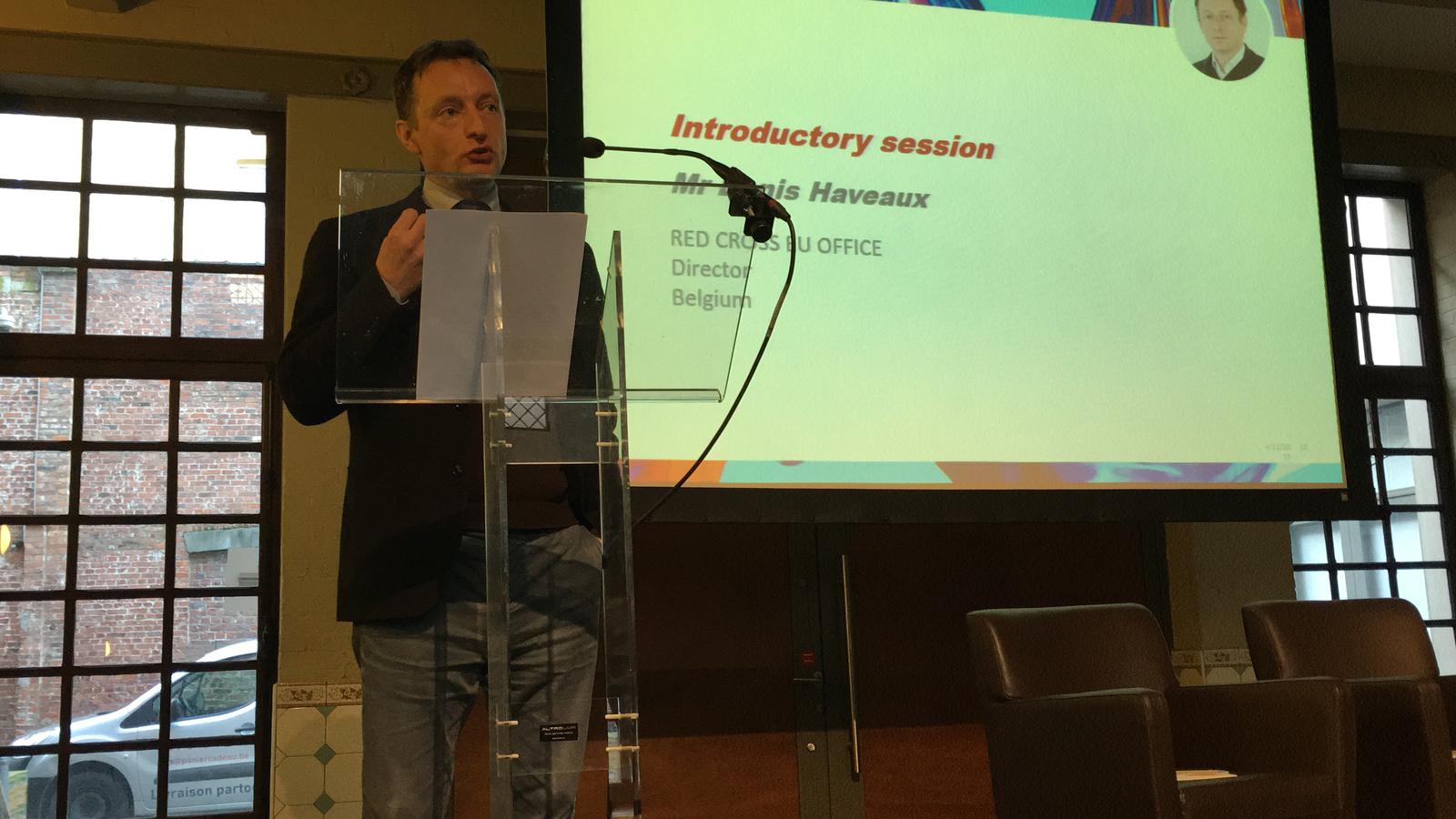Improving the reception of asylum seekers in the EU
Back in 2011, several reception agencies in Europe created the European Platform of Reception Agencies (EPRA) to share good practices and enhance the ways in which the reception of asylum seekers is managed. At the EPRA closing conference on 4 December, Red Cross EU Office director, Denis Haveaux, shared Red Cross experiences in supporting national reception programmes across the EU during the last 30 years.

As auxiliaries to their public authorities, many European Red Cross Societies support their governments by managing reception centres, including with the provision of psychosocial assistance, education and training, and other types of support to asylum seekers upon arrival. Founded on respect for an asylum seeker’s dignity and integrity, these services aim to address each individual’s specific needs. Mr Haveaux explained how identifying these special needs can be challenging. For example, people with limited mobility may be easily detectable, while the needs of victims of trafficking or other forms of abuse can be completely invisible to the eye. To reduce the risks of missing such critical vulnerabilities, Red Cross experts – including psychologists, educators, social workers and nurses – carry out holistic assessments and determine the most appropriate type of care for each asylum seeker.
At the conference, UNHCR Regional Representative for EU Affairs, Vargas Llosa, raised concerns over the increasing use of detention in the context of migration-management. He underlined that immigration detention should only be used as a measure of last resort, calling on Member States to further explore alternatives to detention. “Children should never be detained for immigration-related purposes, irrespective of their or their parents’ legal status, as detention is never in their best interests”, Mr Llosa added.
Simon Mordue, European Commission Deputy Director-General for Migration, shared how the number of asylum seekers coming to the Union has decreased in the last couple of years. As a consequence, several Member States have decided to down-size their reception capacities. “Dramatically reducing reception facilities can be counterproductive in the long-term”, stressed Mr Haveaux. “The expertise of trained staff is lost each time a reception centre closes”, he added. Indeed, starting from scratch each time there is an increase in arrivals is not effective financially, nor in terms of the quality of care offered. It is thus smart to invest in some extra capacity and select better quality facilities to be prepared to respond efficiently if more people start to arrive.
Mr Mordue also highlighted how variations in reception conditions tend to encourage asylum seekers to move from their first country of application to another EU Member State. Member States should therefore aim to implement actions that include integration-related activities, with more funding allocated to initiatives that enhance social inclusion and give asylum seekers the tools to build their futures. For example, activities to develop social networks and acquire more knowledge about the new country of residence.
“Establishing functional receptions systems in the EU is crucial”, said Theo Francken, Belgian Secretary of State for Asylum and Migration. Current negotiations on the next Multiannual Financial Framework (MFF), especially the Asylum Migration Fund (AMF), represent an opportunity to support improved reception facilities and implementation of the Common European Asylum System (CEAS). “Regrettably, the proposed structure of the AMF does not include allocation or spending requirements for the asylum priority”, Mr Haveaux pointed out. “Without a minimum of at least 30% of national programme envelopes dedicated to asylum-related activities, discrepancies in the application of the CEAS will most probably persist”, he added.
To ensure that dignified reception standards are guaranteed in all countries, EU rules should be fully implemented by all Member States. “These rules should be applied based on the principle of humanity and respect for the individual circumstances, vulnerabilities and needs of each asylum seeker”, concluded Mr Haveaux.
For media inquiries, please contact Eva Oyón on: eva.oyon@redcross.eu or +32 2 235 09 22

